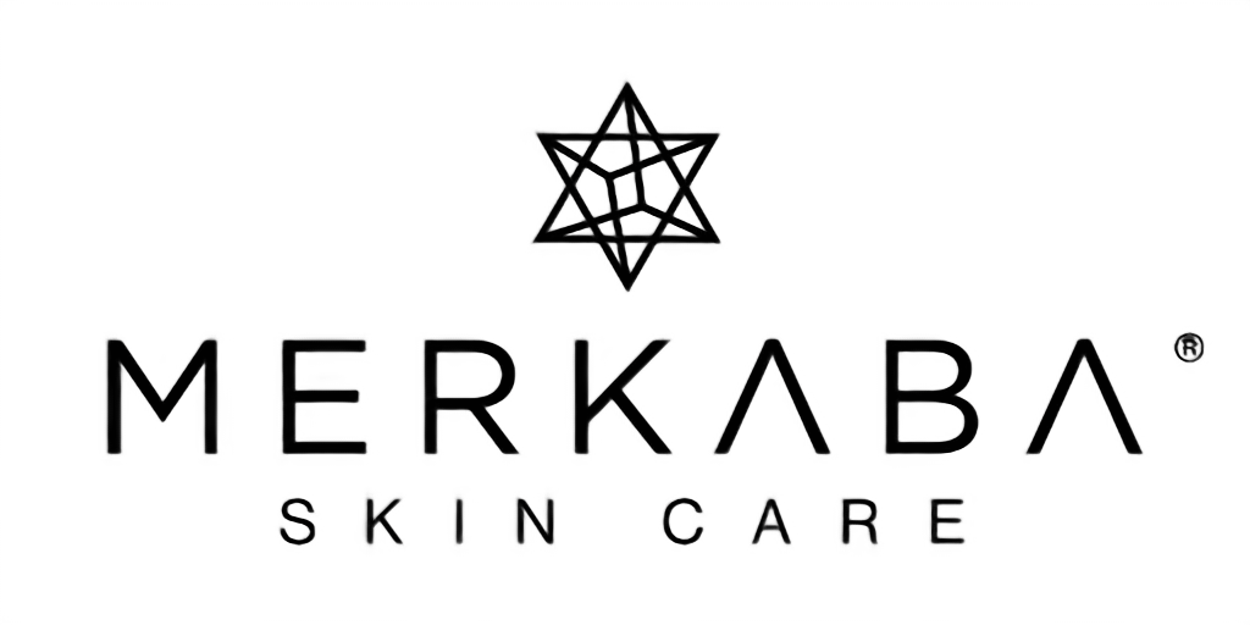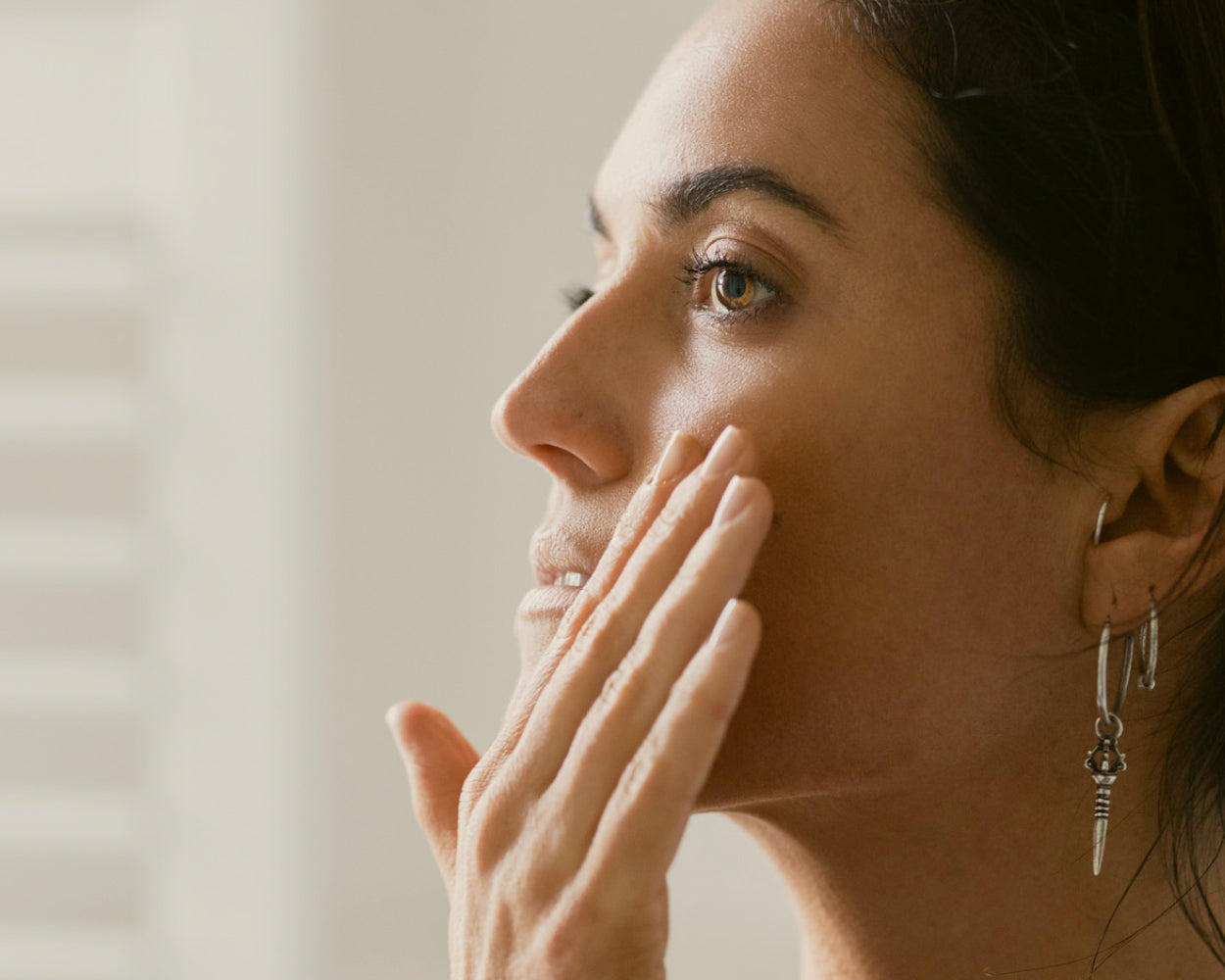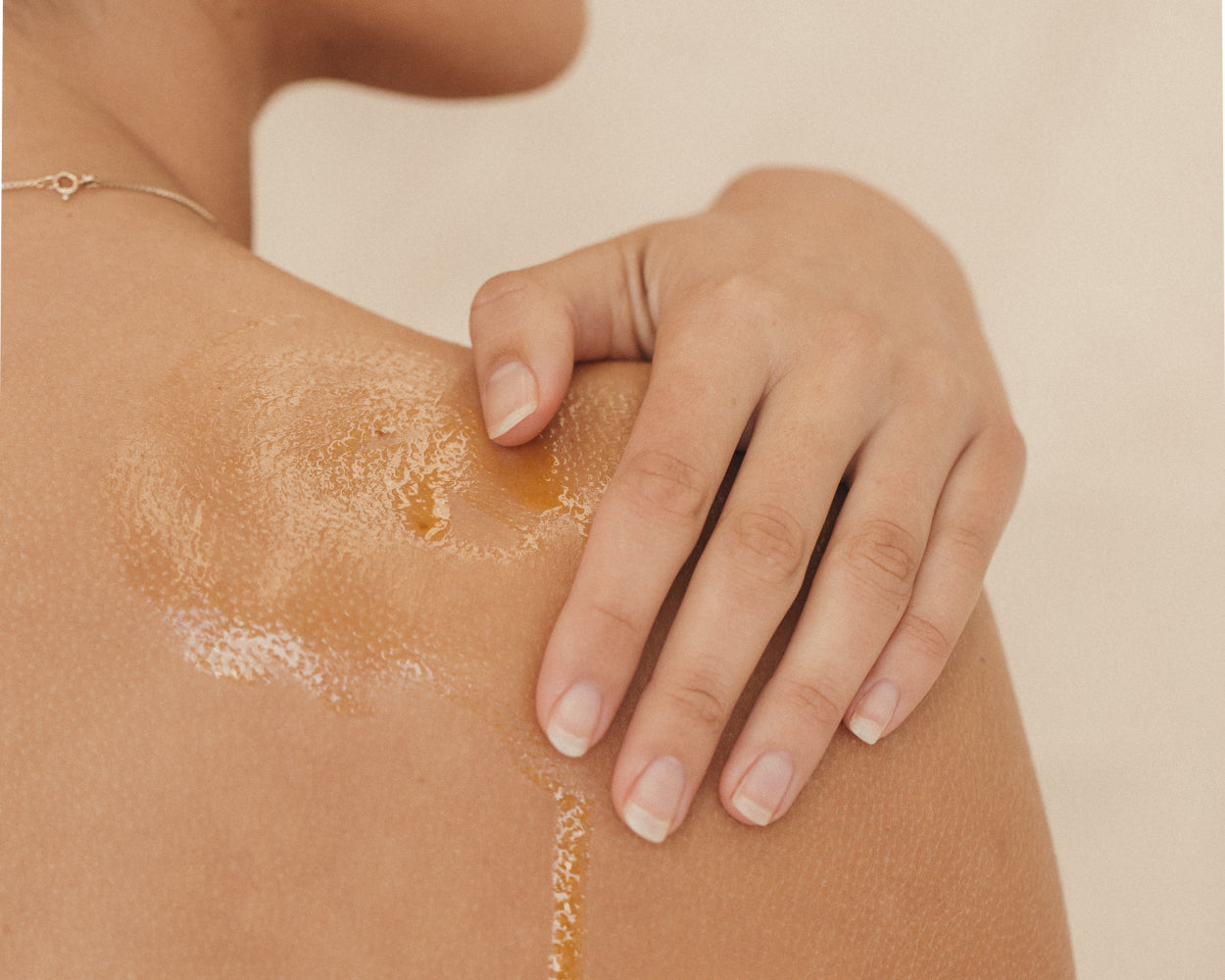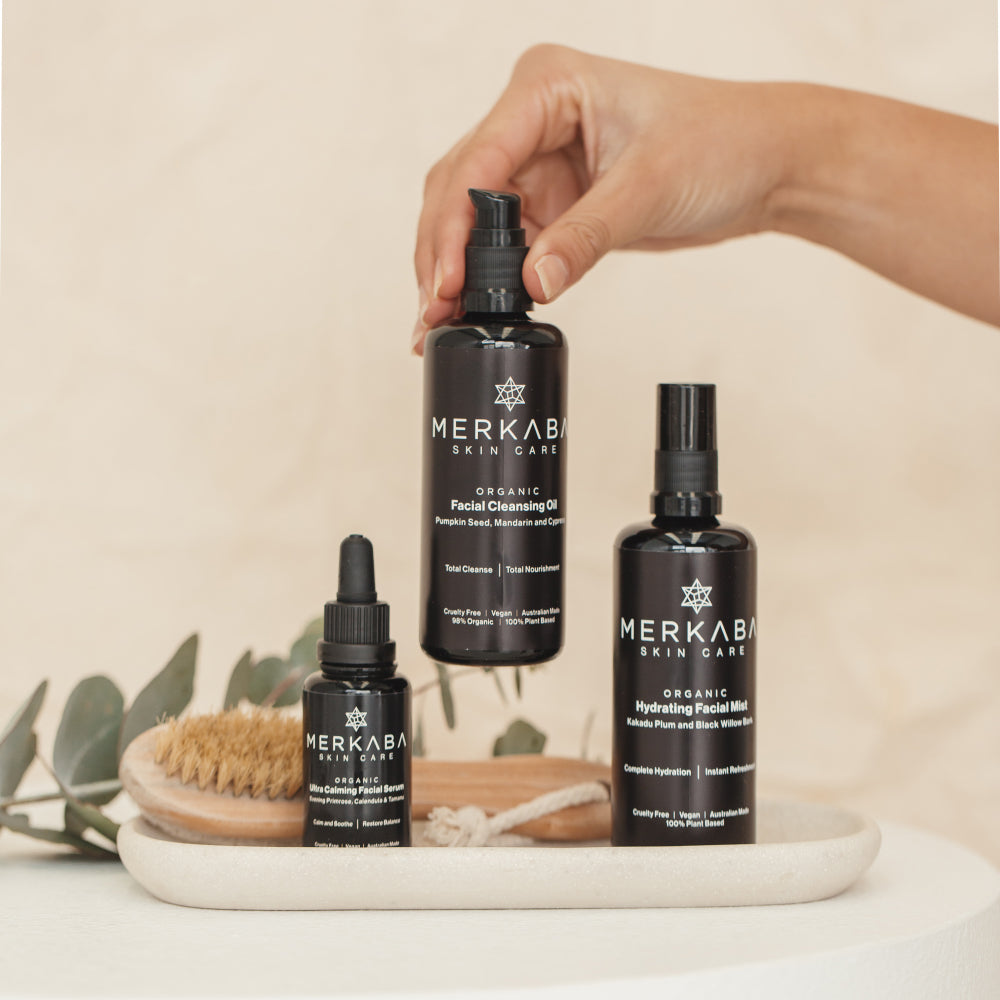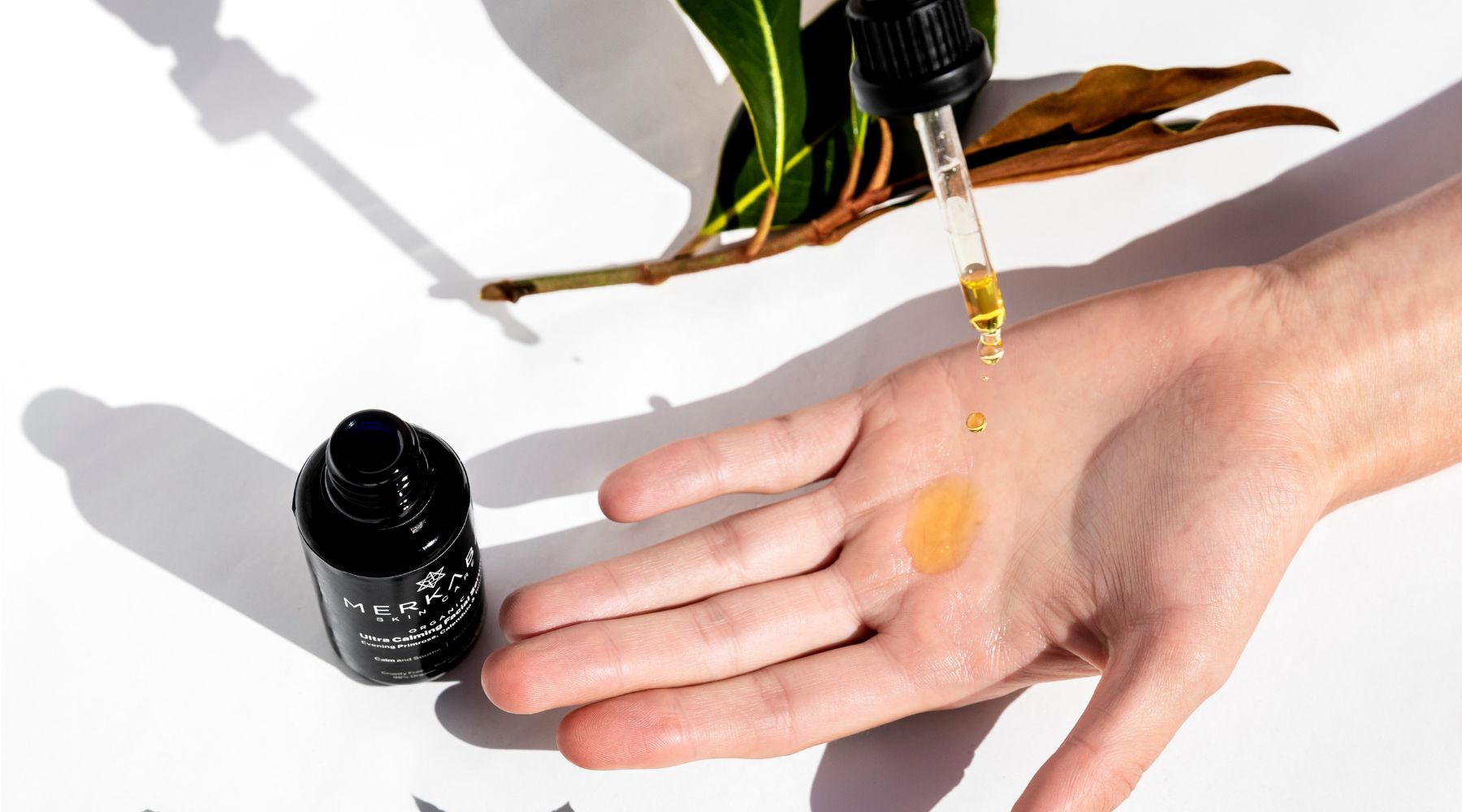Article: Rosacea - How to treat it naturally and holistically
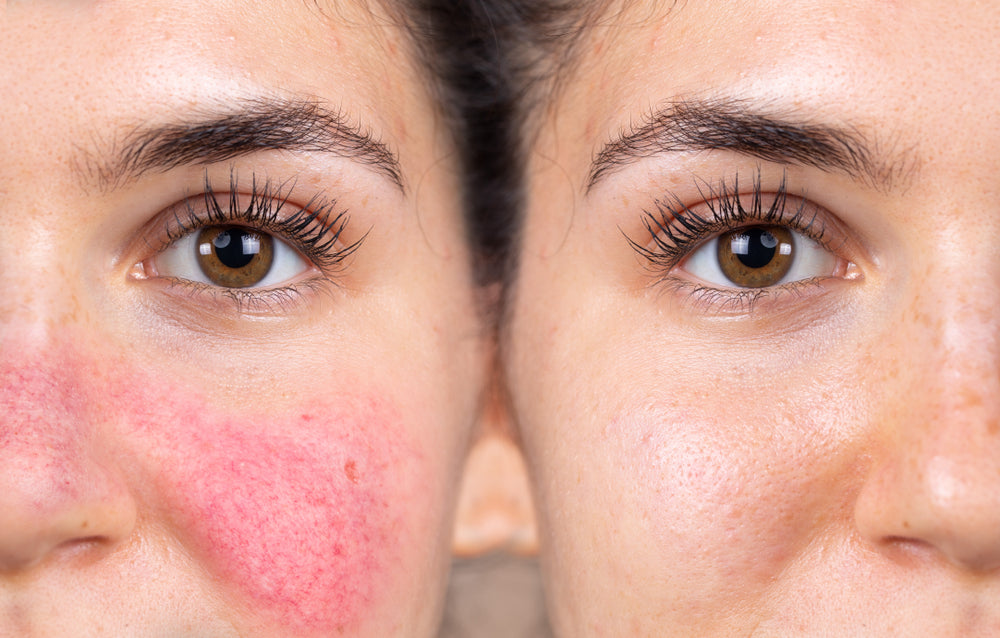
Rosacea - How to treat it naturally and holistically
WHAT IS ROSACEA?
Rosacea is a common, non contagious, inflammatory skin condition typically affecting the nose, cheeks and forehead. It is characterised by redness, likened to flushing, which is caused by dilated blood vessels. Sufferers may also complain of sensory symptoms such as burning, itching or stinging. Symptoms generally worsen if left untreated and the skin can become increasingly inflamed with the development of papules, pustules, blisters and visible thickening of the skin.
Rosacea is a complicated, often disfiguring condition to live with, frequently causing embarrassment and frustration. It responds best with a holistic approach since stress and diet are instrumental factors in both causing and eliminating outbreaks.
WHAT CAUSES ROSACEA?
Although the cause of rosacea is unknown, there is often a genetic disposition and it more commonly affects fair skinned women in the 30 to 50 age group. It appears to be triggered by environmental factors which vary from person to person and can change over time.
COMMON TRIGGERS
Anything that causes your rosacea to flare up is known as a trigger. The key is identifying and avoiding these triggers as much as possible to help prevent dilation of the blood vessels. The following are a list of the more common offenders which often result in flare ups and breakouts.
-
Stress - Elevated cortisol and adrenalin production which is associated with chronic stress will often exacerbate flare ups. Increased levels of these hormones weakens the immune system, causing an inflammatory response, often resulting in a worsening of symptoms.

- Dietary factors - Drinks such as alcohol, coffee or tea and hot, spicy foods such as cayenne and hot peppers cause blood vessels to dilate, often resulting in facial redness. As can foods high in acids such as tomatoes, beets and onions. Other foods to avoid are those which may lead to inflammation such as refined carbohydrates, processed foods, trans fatty acids, chocolate, dairy and gluten.
- Extreme temperature changes - Becoming overheated or moving from one extreme temperature to another can wreak havoc on rosacea symptoms.
- High intensity exercise - We all know that exercise is vital for physical and mental health but heavy exercise, particularly in warmer weather causes excessive flushing due to increased blood flow to the skin.
- Excessive sun exposure - Particularly in the middle of the day is a common culprit foe triggering rosacea symptoms.
- Irritants found in skincare products - Some of the more common irritants which can lead to flare ups include alpha hydroxy acids, alcohol, menthol, peppermint, eucalyptus, abrasive scrubs and cleansers, salicylic acid, vitamin A and synthetic fragrances and preservatives.
MANAGING ROSACEA NATURALLY
Treating rosacea with prescribed medications often calms the symptoms but doesn't actually treat the rosacea This is concerning because it may mask the fact that a more serious health concern could be developing. It is best treated holistically, by aiming to heal the skin from the inside, as environmental and lifestyle factors generally play a major role.
- Stress management - Introduce calming practices such as meditation, mindfulness, yoga, breathwork, qi gong, and tai chi which are designed to quiet the busy mind and relax the body, thus reducing overall stress load.
-
Healing foods -Green tea and chamomile tea, oily fish and other healthy fats such as avocados and olive oil, turmeric, cooling fruits and vegetables can calm symptoms due to their overall anti-inflammatory and antioxidant properties. There is also much talk about rosacea possibly being triggered by an imbalance in our gut microbiome, therefore foods that promote good gut bacteria may help to reduce rosacea symptoms. These include prebiotics such as asparagus, garlic, onions, beans and leeks and probiotics such as sauerkraut, kefir, yoghurt and miso.

- Temperature Management - Avoid excessive heat in summer by the use of fans and air conditioning where possible. Dress in layers so you can remove them if you begin to overheat. Choose clothing made from cotton (organic cotton is even better) and avoid synthetic fibres such as polyester as these don't 'breathe' as cotton does. Avoid saunas and hot steaming baths. Winds and excessive cold may also trigger symptoms, therefore protect your face from wind and cold with a scarf in the winter, avoiding wool as this can trigger a flare up.
- Keep cool while exercising - In the warmer months aim to exercise earlier in the day. Choose shaded paths, air conditioned gyms or exercise in water. Enjoy a low or medium intensity workout and have supplies on hand such as a spray bottle of cold water to use on your face and/or a wet towel to drape around your neck when feeling warm. Remember to stay well hydrated by drinking water before, during and after your workout. It's vital to continue to exercise, as among its many benefits, it increases endorphins which help to reduce stress.
- Mindful sun exposure - Sun exposure with its subsequent production of Vitamin D is necessary for optimal cellular health but it's always best to avoid harsh sun, particularly during the middle of the day. If you can't avoid midday exposure, seek shade where possible, use light weight, protective clothing and find a good natural sunscreen containing ingredients such as zinc oxide and titanium oxide
-
Skincare - Adopt a simple skincare routine and seek products with natural, organic ingredients, free from harsh chemicals and other skin irritants. If makeup can't be avoided, ensure to remove at night and double cleanse twice a day. We recommend products such as our facial cleansing oil with pumpkin seed, which gently removes dirt and toxins and balances the pH of the skin without the use of harsh astringents. Make sure you gently pat the face dry without rubbing the skin. Choose a natural, plant based moisturising product such as our 'Restore' serum with rosehip and sea buckthorn CO2 extracted oils. Or our 'Soothe' Ultra calming serum with tamanu and evening primrose CO2 extract. These superior ingredients are highly nutritious and contain profound levels of antioxidants which support and protect the skin and improve resistance to environmental stress.

Although millions of people across the globe suffer with rosacea, this debilitating condition is still poorly understood. Getting to know your own personal triggers is key to management, but also challenging, as symptoms may come and go depending on stress levels and some triggers and solutions may take days to take effect. Consider implementing the above strategies and perhaps keep a diary to help you identify patterns in your day which may exacerbate flare ups.
